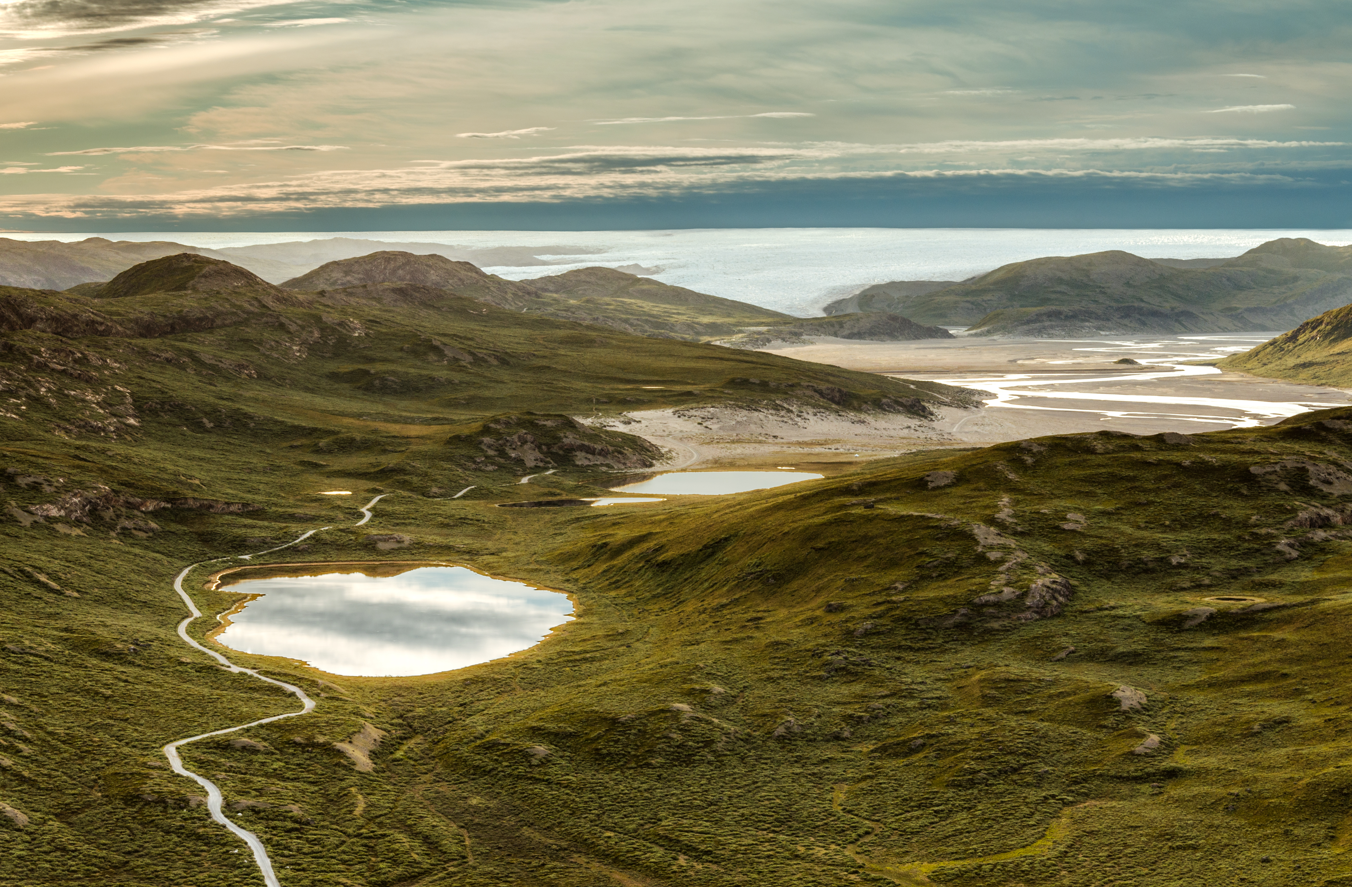West Greenland’s lakes have undergone an alarming change. Within just a couple of years, thousands of its great blue lakes have turned brown and become dominated by a stinking gunk that pumps out carbon emissions. According to a new study, atmospheric rivers might be to blame.
ADVERTISEMENT GO AD FREE
Scientists at the University of Maine estimate that around 7,500 lakes in West Greenland underwent unprecedented ecological changes following a bout of record heat and precipitation in fall 2022.
When the team studied some of the impacted lakes in July 2023, they found that the waters had undergone a radical change in terms of their physical, chemical, and biological properties.
The warm temperatures caused the autumn precipitation to fall as rain rather than snow. Additionally, the heat prompted the surrounding permafrost to thaw, releasing an abundance of carbon, iron, magnesium, and other elements. Combined, the heavy rainfall washed these substances into the lakes, significantly altering their chemistry.
In turn, the flood of organic material and nutrients turbocharged the growth of bacteria in the lakes, turning the waters brown and giving them a nasty taste and smell. This is far from ideal since the lakes provide residents with fresh drinking water.
“The increased dissolved organic material can interact with drinking water treatment processes to produce chlorination byproducts called trihalomethanes, which may be carcinogenic,” Jasmine Saros, lead study author and Associate Director of the University of Maine Climate Change Institute, said in a statement.

Some parts of Greenland are actually green in the warmer months, but most of the island is covered in giant ice sheets.
Image credit: Vojtech Jirka/Shutterstock.com
As the lakes became darker and cloudier, the lack of light caused a sharp decline in the biodiversity of plankton and upset the region’s climate cycle.
ADVERTISEMENT GO AD FREE
The unusual conditions decreased the number of phytoplankton that absorb carbon dioxide from the atmosphere through photosynthesis, yet increased the amount of plankton that release carbon. As a result, there has been a 350 percent increase in carbon dioxide emissions – a climate-warming greenhouse gas – from the lakes.
The researchers believe the initial wave of weird weather that drove these changes might have some link to atmospheric rivers, large streams of airborne water vapor that transport huge amounts of moisture in Earth’s atmosphere. A series of these phenomena in fall 2022 could have dumped excessive amounts of moisture and heat on west Greenland, sparking the cascading problem.
The trail of atmospheric rivers led to an abrupt change to the freshwater ecosystems in West Greenland, but the researchers are now eagerly waiting to see whether it will bounce back with the same gusto.
“It was such an overwhelming climate force that drove all the lakes to respond in the same way,” Saros said. “When it comes to recovery, will it be the same across lakes or different?”
ADVERTISEMENT GO AD FREE
The study is published in the journal Proceedings of the National Academy of Sciences.
Source Link: Atmospheric Rivers Are Causing Ecosystem Chaos In West Greenland's Lakes